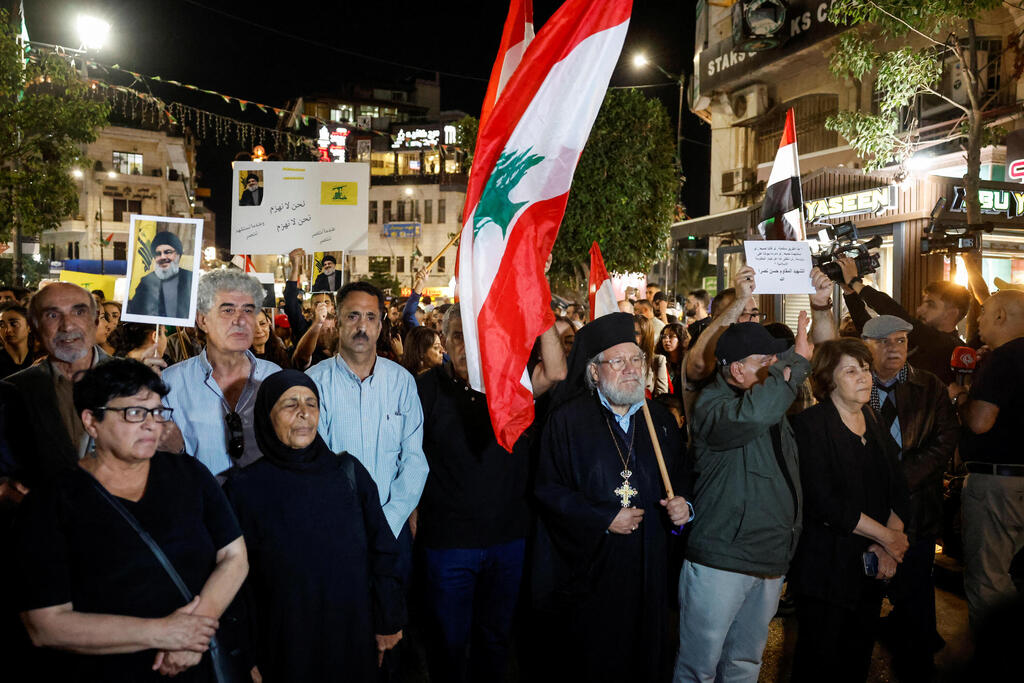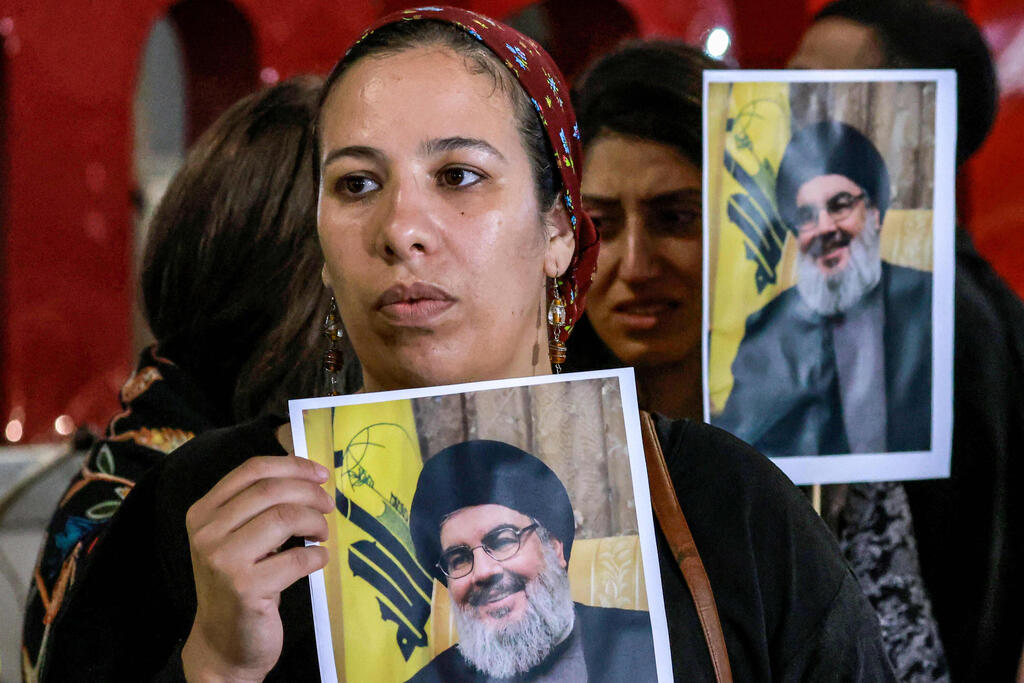Nearing the twilight of his tumultuous reign, Hassan Nasrallah fashioned himself as the "guardian of Palestine," offering Hezbollah's military might to the cause against Israel.
Yet, the relationship between the leader of the Iran-backed Shiite terror group and the Sunni Palestinians was not always harmonious. While Nasrallah engaged in alliances with various terrorist factions, tensions were particularly pronounced with the Palestinian Authority.
2 View gallery


Demonstration in Ramallah after death of Nasrallah
(Photo: Mohammed Torokman//Reuters)
Animosity between Hezbollah's secretary-general and the Palestinian leadership dates back to the era of Yasser Arafat, who died in 2004. In an interview from that period, Nasrallah, when asked about his disagreements with the Palestinian leadership, retorted: "What Palestinian leadership? Yasser Arafat? We do not recognize this leadership, and it holds no legitimacy among the Palestinians."
In another speech, he provocatively questioned: "Why isn't there a Palestinian officer or policeman who would assassinate Arafat and proclaim Arafat a disgrace to the Palestinians?"
"There were never any ties with Nasrallah or his organization. On the contrary, he preferred to insult us, glorify Hamas, encourage them to defeat Fatah and oust them from power. He sought to incite and deepen the rift between Hamas and Fatah," a senior PA official told Ynet following Nasrallah's elimination.
Despite this history, Palestinian Authority President Mahmoud Abbas issued a succinct condolence message to the Lebanese people on the death of Nasrallah and to the citizens of the country.
The PLO, an umbrella organization of Palestinian factions, also released a statement expressing sorrow and calling for an urgent cessation of the conflict "against Palestinians and Lebanese." In Ramallah, a protest against Israel took place in the evening, with images of Nasrallah prominently displayed.
For Hamas and Palestinian Islamic Jihad (PIJ), the relationships were markedly different. Nasrallah viewed them as a critical operational arm within the territories for the "axis of evil." Khalil al-Hayya, the deputy leader of Hamas, said in a recorded message: "We mourn with the Palestinian people and the entire nation the death of Hassan Nasrallah and his fellow fighters." He added: "The occupation bears responsibility and consequences for Nasrallah's killing and the attack in Beirut. The assassination of Hassan Nasrallah will not break the resistance."
PIJ Secretary-General Ziyad al-Nakhalah was also known to be close to the Hezbollah leader and the Iranian regime, which provided him with significant financial support. "The Palestinian resistance understands that it has lost great support in its path, and it will remain loyal to his memory and great legacy," al-Nakhalah said. "We are confident Hezbollah will continue his path and uphold the banner of resistance until Jerusalem is liberated."
Nasrallah's body recovered from rubble
In Gaza, a year into the war initiated by Hamas and joined by Hezbollah, opinions diverged following Nasrallah's elimination. Anas Sharif, a Hamas-affiliated journalist from Jabaliya, wrote on social media: "We belong to God, and to Him we shall return. O God, compensate us for our disaster and give us something better."
Meanwhile, Gazan journalist Ihab Al-Fasfus wrote on Facebook: "In a moment, he found himself before God, accountable for all his deeds in creation... and there will be no intercession or forgiveness."






